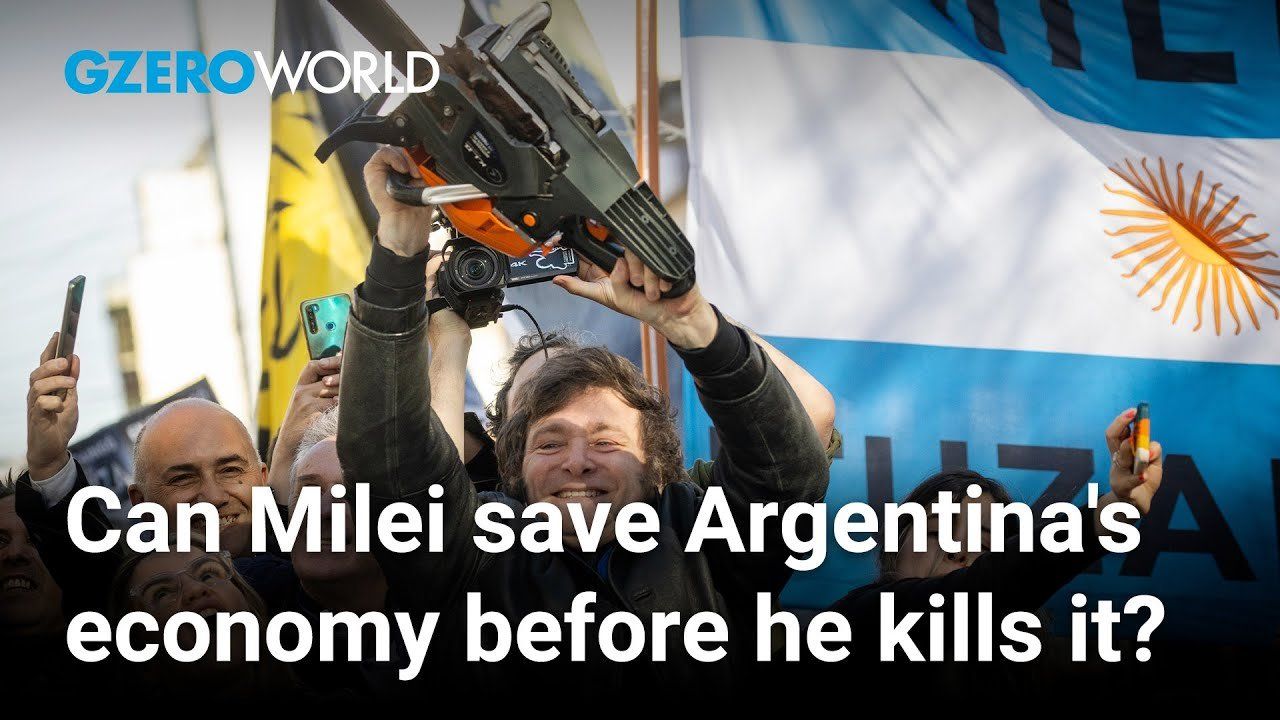
In an exclusive interview with Ian Bremmer for the latest episode of GZERO World, President Javier Milei acknowledges the severe economic crisis gripping Argentina. "Life is going to be harder for the average Argentinian citizen," he admits, underlining the difficult path ahead. Milei argues that his approach centers on transparency, a stark contrast to previous administrations. "Our approach was to always tell people the truth and to actually tell it like it is, saying that it wasn't going to be easy," he explains, emphasizing the need for honesty in these trying times.
As Milei puts it to Bremmer, his administration inherited a dire economic situation, with a staggering 17% double deficit in GDP and annual inflation soaring to an unimaginable 17,000%. "The solution inevitably had to be 'shock therapy,'" Milei states. He points out that incremental approaches have historically failed in Argentina, making shock therapy the only viable option. Despite the harshness of these measures, Milei believes they are crucial for long-term stability and growth.
Watch the full interview on GZERO World with Ian Bremmer, the award-winning weekly global affairs series, airing nationwide on US public television stations (check local listings).
New digital episodes of GZERO World are released every Monday on YouTube and on our website. Don’t miss an episode: subscribe to GZERO's YouTube channel and turn on notifications (🔔).
- Chainsaw cuts path to new Argentina-IMF deal ›
- Argentina's President Javier Milei wants his nation "on the side of liberal democracies" ›
- Milei makes fiery Davos debut ›
- The masses test Milei with major protest ›
- How Javier Milei is turning Argentina's economy around ›
- Is Milei moderating? Argentina’s president-elect takes power ›
- Who the heck is Javier Milei? ›
- Javier Milei's plan to save Argentina: Full interview - GZERO Media ›